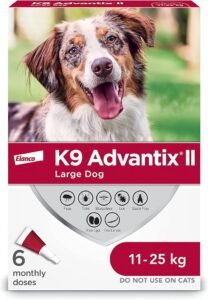Because they aid in maintaining intestinal health and have few known negative effects, dog probiotics and prebiotics can be a wonderful addition to your dog’s regular regimen. But if you’re anything like the majority of pet owners, you might not fully understand how they function. What follows is a comprehensive guide to canine prebiotics and probiotics.
A probiotic is “live microorganisms, which confer health effects to the host if administrated in sufficient amounts,” according to the FAO and WHO’s official definition. A plethora of research has demonstrated that probiotics enhance metabolic rate, immunological response, and intestinal barrier function. The fact that probiotics improve longevity by suppressing age-related variables in the body is even more intriguing.
The canine microbiome is strikingly comparable to the human microbiome in terms of structure and function, making it possible to extrapolate from human trial outcomes to dogs. As a dog parent, one must know ways to increase your dog’s health and safety.
Canine Digestive Health
The lymphoid tissue in your dog’s intestines makes up a significant part of his immune system. If a virus was to infiltrate a dog’s body, this tissue would act as the first line of defence. Additionally, it affects the feeding habits, metabolic processes, and energy expenditure of a dog.
For this reason, a dog’s immune system functions best when its digestive tract is in good shape and prepared to fight off any threats. Maintaining a healthy balance of good and bad bacteria is an important component of a dog’s digestive tract.
Bacteria: The Pros, Cons, and Everything in Between
Maintaining a healthy gut flora balance is essential for your dog’s overall health. Your dog’s gut naturally includes both “good” and “bad” bacteria.
Despite the abundance of “bad” bacteria that can infect a dog’s digestive system, the good news is that the gut is home to a diverse community of bacteria that help keep the bad guys in check. To achieve this, they manufacture fatty acids that inhibit the growth of pathogenic bacteria.
If the good bacteria weren’t there or were outnumbered, the “bad” bacteria would proliferate and harm the dog’s intestines, making it hard for the body to absorb nutrients efficiently.
Weight loss, drowsiness, diarrhoea, dehydration, and an increase in noise in the dog’s digestive tract are symptoms that follow. When the digestive tract is damaged, harmful bacteria can be absorbed by the intestines, which can compromise the immune system.
In what ways might bacteria become unbalanced?
Using antibiotics is among the most common ways to upset your dog’s delicate bacterial balance, although there are many more potential culprits.
Antibiotics can eradicate any type of bacterium; unfortunately, they frequently eradicate both “good” and “bad” germs. Because of the resulting imbalance in the gut’s natural bacteria, which should promote digestion, this disturbs the microbiome of the gut. This is why it’s common for antibiotics to cause diarrhoea in dogs.
Prebiotics
Prebiotics are made up of indigestible fibre. Prebiotics are indigestible by dogs, but they make it to the colon, where they nourish the “good” bacteria already there and contribute to the dog’s overall health.
Prebiotics are similar to fertilisers in that they encourage plant growth. In the same way that probiotics help control “bad” bacteria, prebiotics work with the good bacteria already present in your dog’s digestive tract to do the same.
Probiotics
Probiotics replenish any “good” bacteria that may have been lost from your dog’s system, while prebiotics feed the beneficial bacteria that are already there. This is accomplished by controlling the production of cytokines (TNF-α and IL-6), which in turn enhances immunity and forms a protective barrier through the release of SIgA.
For instance, it may be necessary to restore beneficial microorganisms if your dog’s antibiotic treatment eliminates them. Prebiotics are like fertiliser for the beneficial bacteria in your dog’s digestive tract, while probiotics are like reseeding your garden after a cyclone has wiped it out.
Can Prebiotics and Probiotics Cause Side Effects?
A healthy dog is quite unlikely to experience any adverse effects from using prebiotics or probiotics.
However, it is important to note that older dogs, dogs with preexisting health issues, and young dogs should always be thoroughly supervised by a veterinarian while they undergo therapy due to their increased susceptibility to problems and adverse effects.
Wrap up!
Before giving your dog any kind of supplement, including prebiotics or probiotics, it is important to talk to your vet. Considerations such as your dog’s age, food, and present health status are essential.











